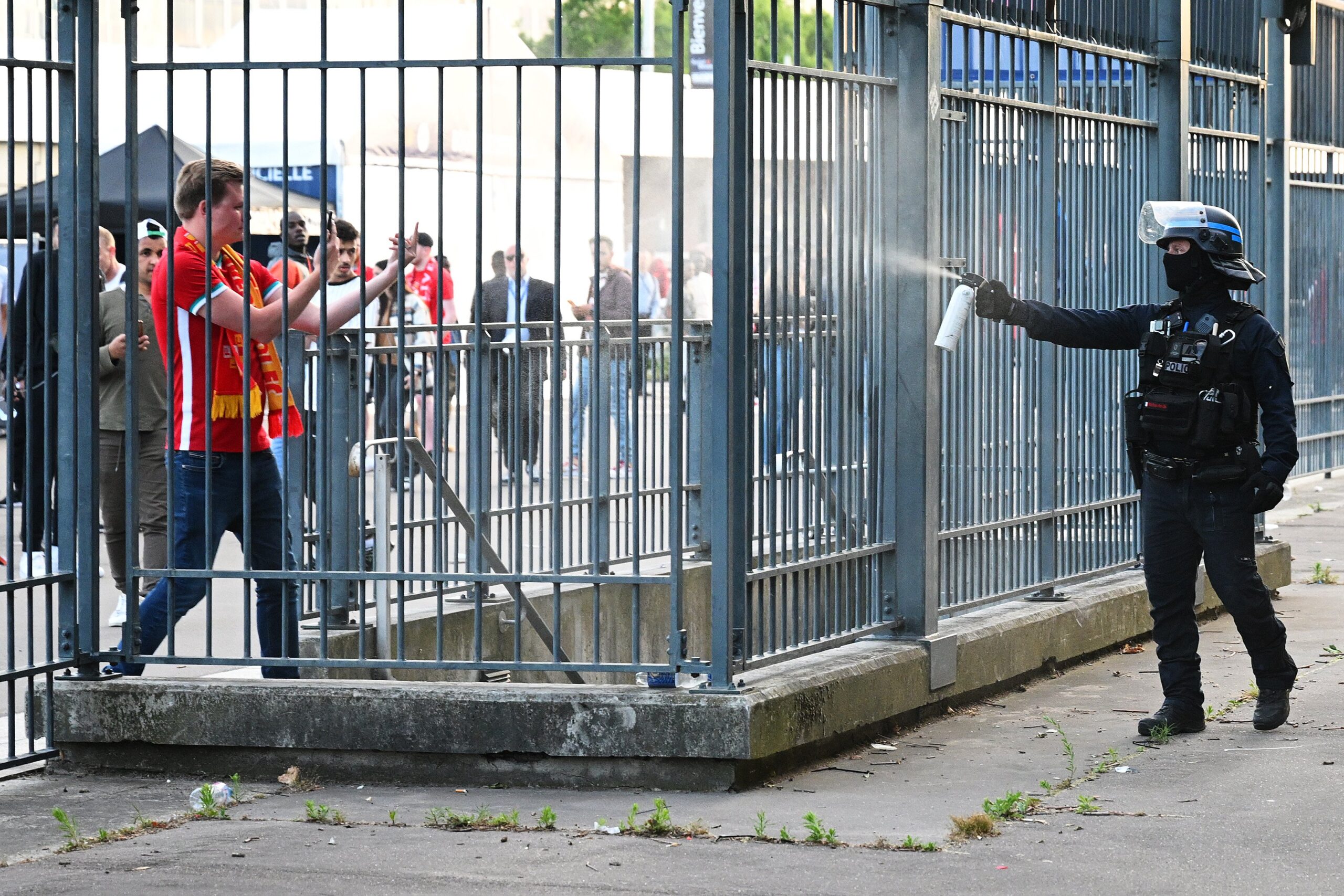A reunion match with Real Madrid in the Champions League on Tuesday could potentially unlock bitter memories to Liverpool fans of the failings that put their lives at risk at last year’s final in Paris.
Madrid’s 1-0 win at the Stade de France on May 28 was upstaged by the spectacles that beleaguered the European football’s showpiece event.
Kick-off was delayed by 37 minutes as fans struggled to access the stadium after being funneled into overcrowded bottlenecks on approach.
Police then fired tear gas towards thousands of supporters locked behind metal fences on the perimeter to the stadium.
An independent report, commissioned by UEFA and published last week, found European football’s governing body bore “primary responsibility” for failures which “almost led to disaster”.
There were no fatalities in the French capital, but there was still a physical and mental price to pay for both the lack of organization on the part of the authorities before the match and mudslinging towards supporters in the aftermath.
Ted Morris, chair of the Liverpool Disabled Supporters Association, described the scenes he witnessed as a “carnival of horror.”
For many Liverpool fans the scenes brought back memories of a crush at Hillsborough Stadium in 1989 that resulted in the deaths of 97 supporters.
Some remain too scarred to return to watching matches live, even in the familiar surroundings of Anfield.
“I think we’re still all suffering from the aftereffects of the final,” Joe Blott, chair of Liverpool supporters group Spirit of Shankly, told AFP.
“Many people I know and other people are struggling to get to the game now as a consequence of the crowd management.”
Mental health support
The Hillsborough Survivors Support Alliance has seen a spike in fans seeking mental health support since events at the Stade de France.
Liverpool have worked together with mental health charities and put funding in place to help those struggling with flashbacks.
“It’s vitally important that supporters know there is help out there if they feel they need it,” said Liverpool chief executive Billy Hogan.
“Working together with a number of expert mental health organizations, and with the support of (Liverpool’s director of public health) Matt Ashton’s expertise, this resource is still available to all fans.
“It not only signposts people where to go for support but also offers advice to those dealing with the ongoing effects of such a distressing event.”
UEFA initially tried to pin the blame for the delayed kick-off on Liverpool fans arriving late despite thousands having been held for hours outside the stadium.
European football’s governing body finally apologized last week, but wounds remain open among the Liverpool support.
The Champions League anthem is expected to be disrupted before kick-off of Tuesday’s last 16, first leg tie.
“It’s good that the truth is out there,” said Gareth Robertson, a 25-year-old student outside Anfield on Monday.
“But they (UEFA) tried to get away with blaming Liverpool fans.”
Politician and Liverpool fan Ian Byrne has called on UEFA president Aleksander Ceferin to resign.
Liverpool’s form on the field has also suffered this season with the Champions League the Reds’ last realistic chance of winning a trophy.
And Byrne believes Anfield’s famous atmosphere has been anaesthetized by the aftermath of Paris.
“So many people are still damaged by what they experienced,” Byrne told AFP.
“I feel people are at the game under anesthetic. It feels like all the passion has been sucked out.”

